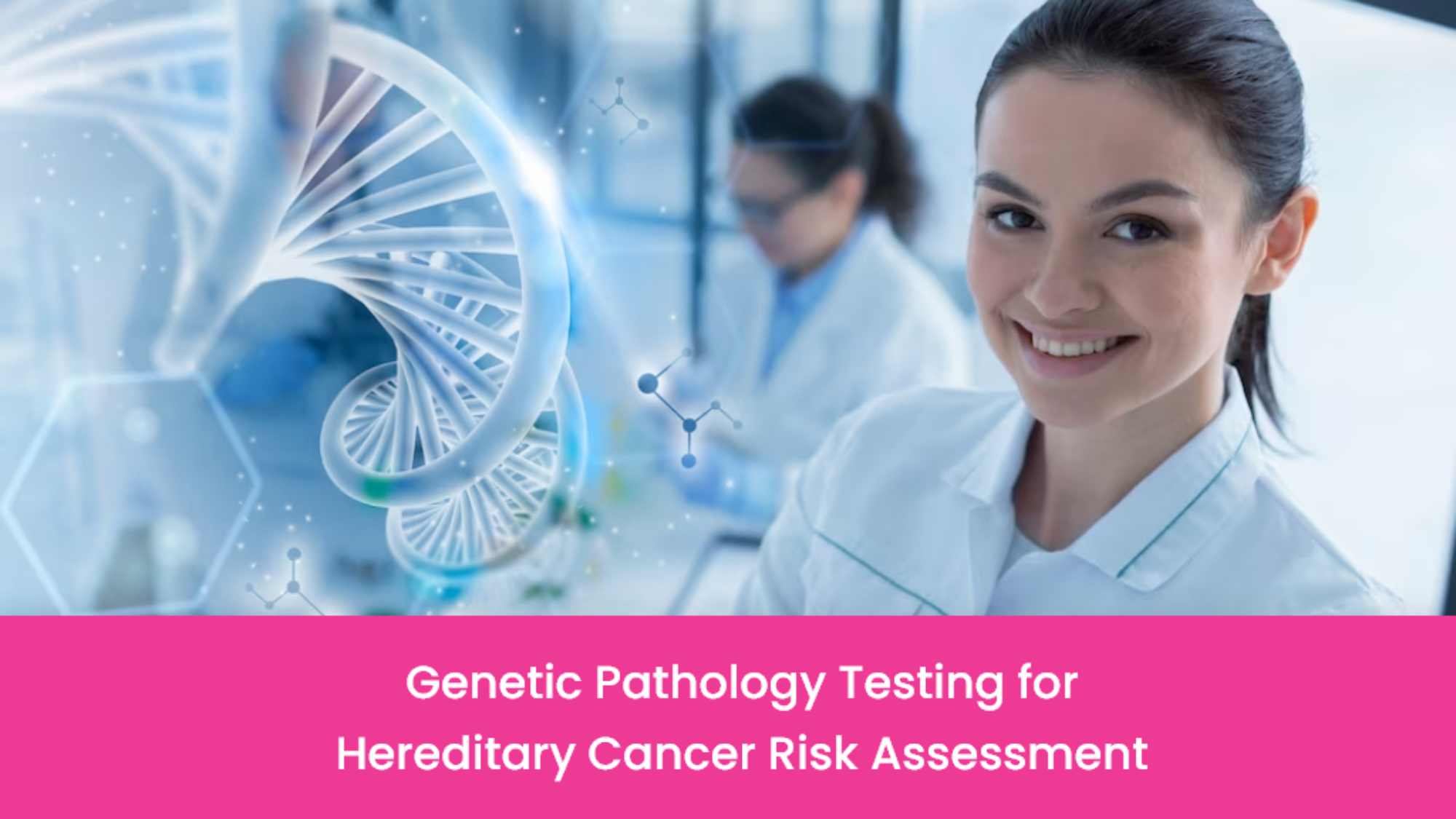Genetic pathology testing, specifically for hereditary cancer risk assessment, has emerged as a powerful tool in identifying individuals at a higher risk of developing certain types of cancer due to inherited genetic mutations.
Cancer, one of the leading causes of death worldwide, can have complex origins. While many cases are sporadic and arise from various environmental factors, a significant portion of cancers have a hereditary component. These hereditary cancer syndromes result from specific genetic mutations passed down through families, making certain individuals more susceptible to developing cancer in their lifetime.
A step-by-step guide to genetic cancer risk assessment:
Step 1: Understand the Importance of Genetic Cancer Risk Assessment
Before embarking on the journey of genetic testing, educate yourself about the significance of genetic cancer risk assessment. Learn about hereditary cancer syndromes, the genes involved, and the impact these mutations can have on your health and that of your family.
Step 2: Seek Genetic Counselling
Genetic counselling is an essential first step in the process. Find a certified genetic counsellor or geneticist with expertise in cancer genetics. During the counselling session, you will discuss your personal and family medical history, assess your risk factors, and understand the benefits and limitations of genetic testing.
Step 3: Informed Consent
After the genetic counselling session, you will be asked to provide informed consent for genetic testing. This process ensures that you understand the purpose of the test, potential results, and the implications of those results. Take your time to read and ask questions before providing consent.
Step 4: Sample Collection
Once you’ve given informed consent, a sample of your DNA will be collected for analysis. This is typically done through a blood draw, but it can also be done using a saliva sample or a cheek swab. The collected sample will be sent to a specialised laboratory for genetic testing.
Step 5: Genetic Testing
The laboratory will perform the genetic testing using advanced technologies to analyse specific genes associated with hereditary cancer risk. The type of test performed may vary based on your family history and the genes you want to be screened for.
Step 6: Result Interpretation
After the genetic testing is completed, you will have another counselling session with a genetic professional to discuss the results. The results will fall into one of three categories: positive (a pathogenic mutation is found), negative (no pathogenic mutations detected), or variant of uncertain significance (VUS) where the clinical significance of a genetic variant is unclear.
Step 7: Understanding the Implications
Understanding your test results is critical. A positive result may indicate an increased risk of certain cancers, while a negative result does not eliminate the possibility of developing cancer. VUS results may require additional research and monitoring.
Step 8: Developing a Management Plan
Based on the test results and your overall risk assessment, your genetic counsellor and healthcare team will work with you to create a personalised management plan. This plan may include increased surveillance, lifestyle modifications, preventive surgeries, or targeted therapies.
Step 9: Family Testing and Communication
If a pathogenic mutation is identified, your family members may also be at risk. Encourage your close relatives to undergo genetic testing and share the results with each other to help them make informed decisions about their health.
Step 10: Ongoing Support and Monitoring
Genetic cancer risk assessment is not a one-time event. It is an ongoing process that may require periodic reassessment and monitoring. Stay in touch with your genetic counsellor and healthcare team, and follow their recommendations for regular check-ups and screenings.
The role of genetic counsellors in genetic cancer risk assessment:
- Genetic Testing Guidance: Genetic counsellors help individuals choose the most appropriate genetic test based on their family history and risk factors. They explain the different types of tests available, such as single-gene testing or multi-gene panel testing.
- Informed Consent: Before proceeding with genetic testing, genetic counsellors ensure that individuals fully understand the purpose of the test, potential outcomes, benefits, and limitations. They obtain informed consent to proceed with testing.
- Result Interpretation: After genetic testing, genetic counsellors interpret the test results and communicate them to the individual in a clear and understandable manner. They discuss the implications of positive, negative, or uncertain results and address any emotional or psychological reactions that may arise.
- Personalised Risk Management: Based on the genetic test results and risk assessment, genetic counsellors work with healthcare providers to develop personalised risk management plans. This may include increased surveillance, preventive surgeries, lifestyle modifications, or enrollment in clinical trials.
- Stay Current with Research: Genetic counsellors stay updated with the latest advancements in cancer genetics, genetic testing technologies, and risk management strategies. This allows them to provide the most current and accurate information to their clients.
Conclusion:
The role of genetic counsellors in the genetic cancer risk assessment process cannot be overstated. These highly skilled and compassionate professionals are instrumental in guiding individuals and families through the intricate world of genetics, from pre-test counselling to result interpretation and beyond. Genetic counsellors provide a crucial bridge between complex scientific information and the personal experiences of those seeking to understand their cancer risk.


